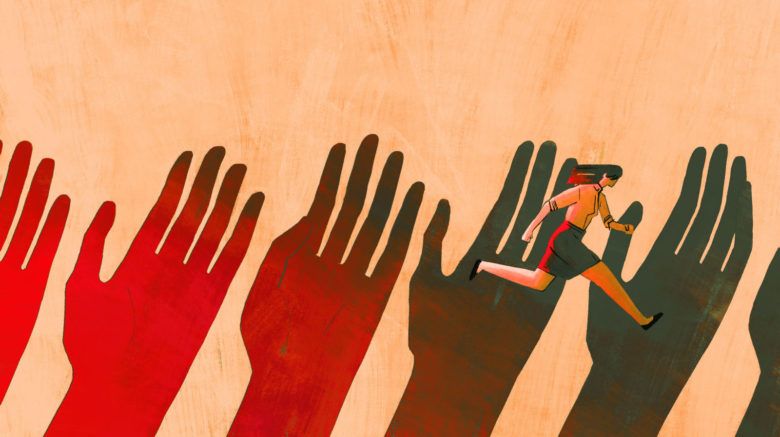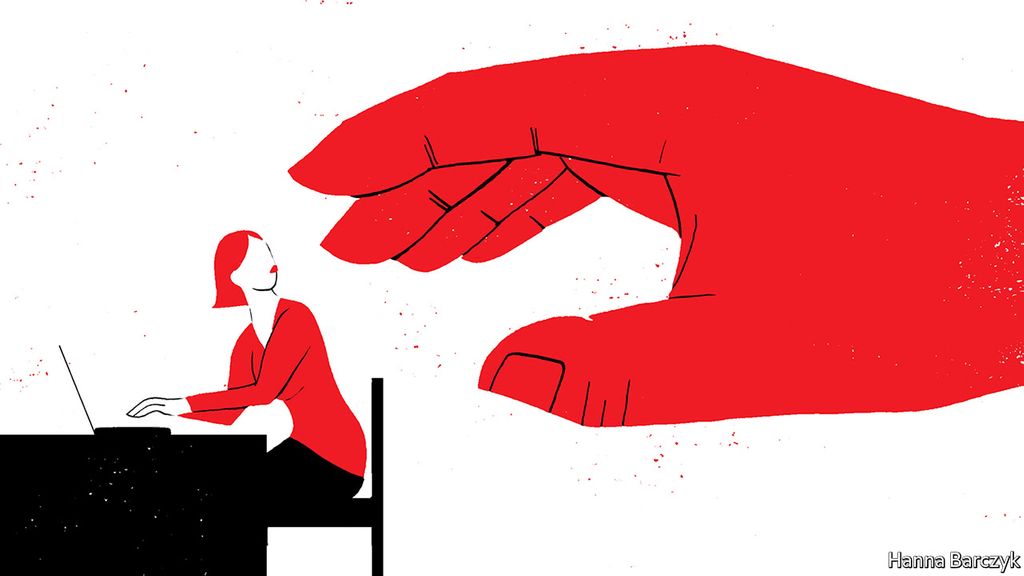Sexual Harassment At Workplace?
May 04, 2019 • 7 views

A touch on the knee. A salacious look. A rough remark by a colleague. There are a vast number of people who have seen or experienced improper sexual remarks or inappropriate behaviour at work.
It is possible that an imprudent remark or signal transforms into something progressively and goes too far from improper to harassment, the line is thin but nonetheless, crucial.Despite being such a common phenomenon, only a minor part of these ‘people’ come to raise their voice against such actions.There is a solid “culture of silence”surrounding harassment, particularly in the working environment. People today need to understand that discussing what occurred, and announcing it, is in fact the best way to change our way of life to one where everybody feels sheltered and regarded.
Sexual harassment in the work environment is an across the board issue all over the world.
Workplace sexual harassment begins with the thought process where people tend to normalize a superior exploiting a subordinate. Surprisingly, the examination paints a unique picture: an investigation directed by the University of Maine found that womenin authority positions are at more serious hazard for lewd behaviour. As per the examination, 58% of female managers in a male-commanded workplace are probably going to encounter harassment, while 42% may encounter harassment in a female-ruled workplace.

For what reason are women in superior positions at risk of greater hazard? The appropriate response is at the foundation of why inappropriate behaviour happens in any case. More often than not, harassment is about power, not sex. Women in places of power compromise the egos of many men. In this way, men think that they can recover the power lost and cause others agony and humiliation.
Low-pay women are also at high risk. An examination led by Hart Research found that two of every five womenin the junk food industry encounter inappropriate behaviour at work. Here, the issue may be considerably more unavoidable, since, by and large, these womencan’t without much of a stretch quit their occupations or move. Numerous womenexpect that they will lose their positions on the off chance that they report the harassment and are along these lines left to either adapt to the harassment alone or attempt to revamp their work routines to keep away from their harassers.
Not talking and coming out about harassment can have many possible reasons.One may fear the outcome, for example, losing their position, getting downgraded or prompting further harassment from the culprit. One may believe that they won’t be accepted, or that nothing will be done about the circumstance. Victims are often made to feel embarrassed about the situation and they are often pressurized into believing that they themselves are the reason behind what has happened to them.
The simple benefit of calling out the harassment is that, one gets a boost to begin the healing and recuperation process and it is very important for one to heal because the effect of something so traumatic could lead to mental health issues like depression, anxiety and more. Even if one is not comfortable in choosing to report the occurrence, it’s fundamental that one deals with themselves – converse with a friend, associate, or specialist about what has occurred, let their heart out to someone or something instead of bottling up all the frustration.
What to do if you are being harassed
It is NOT your fault. In case you’re encountering sexual or any harassment in the working environment, it’s not your fault—it’s the harasser. You’re legitimately qualified for having a sheltered, proficient workplace.
You’re not in this alone. In an extensive study in 2016it was found that somewhere in the range of 25% and 85% of womenexperienced sexual harassment in the working environment. The variety is likely because of individuals’ delay to report harassment, however regardless, the figure is amazing—no less than 1 of every 4 womenhave encountered provocation. The numbers are ascending for men detailing provocation too: a recent reportdiscovered that roughly 17% of men had encountered inappropriate behaviour at work. It’s an across the board issue that has frequently been kept covered up.
Know your rights. In the event that you’ve been pestered, or figure you may have been, it’s imperative to recognize what your rights are.
Discuss it with someone you trust. This can be confided in a friend, however in case you’re encountering harassment or have seen it and need to find a way to determine the issue and want actions to be taken against, your organisation’s HR office is the first place to start. They can help you with either resolving the issue inside or assist you with the stages of structuring a formal complaint.A woman with duct tape on her face in a heart shape. Concept illustration about harassment on work place or any other abuse experience. Text I’ll not be silent. Speak out about sexual harassment.

In spite of awareness and prevention, sexual harassment is stilluncontrolled in the working environment. The only way we will stop sexual harassment is to talk because voices need to be heard and actions need to be taken. The situation needs to improve for everyone to feel safe and allow them to flourish.
